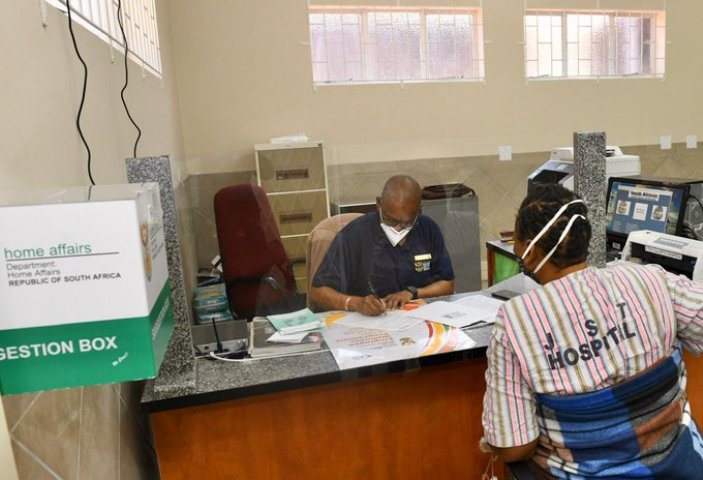Home Affairs Offers Relief as New ID Verification System Proves Successful
The batch processing option is seen as a major breakthrough, offering a lower-cost alternative to real-time checks, especially for bulk verifications that are not time-sensitive.

- Country:
- South Africa
The Department of Home Affairs (DHA) has reported strong early success following the rollout of its upgraded identity verification service on 1 July 2025, which allows both government entities and private sector clients to verify information against South Africa’s National Population Register (NPR) in real time. The launch marks a significant leap in the modernization of identity management systems in the country.
In an official statement, Home Affairs Minister Dr. Leon Schreiber highlighted the system’s performance and its potential to support a more inclusive, accurate, and efficient service ecosystem, from social grants and policing to banking and digital onboarding.
Government Justice Cluster Already Fully Onboarded
According to the department, the entire justice cluster of government—comprising the South African Social Security Agency (SASSA), South African Police Service (SAPS), and the Department of Justice and Constitutional Development—has been successfully integrated into the new service. This cluster alone is now processing over 180,000 identity verification transactions per day, with each returning results in under one second, and an error rate of less than 1%.
This upgrade comes after years of underinvestment and technical deterioration in the NPR system, which previously saw more than half of verification attempts fail, significantly undermining social and financial inclusion in the country.
A Modern System for Public and Private Use
The system is also proving valuable for private sector users, particularly in financial services and telecommunications, where identity verification is crucial. One large private entity has already processed over 1 million records using the off-peak batch verification feature, reducing strain on the real-time queue and helping stabilise the platform for all users.
The batch processing option is seen as a major breakthrough, offering a lower-cost alternative to real-time checks, especially for bulk verifications that are not time-sensitive.
Addressing Delays and Offering Temporary Relief
Despite extensive public engagement—including written submissions and in-person consultations conducted over several months—some users failed to adequately prepare for the transition, even though the new pricing model and system updates were widely publicised.
The current pricing model includes:
-
R10 per transaction for real-time verification
-
R1 per transaction for off-peak batch verification
To ease the financial pressure on late-transitioning users, the department has implemented a transitional relief measure:
-
Clients can opt to have their usage costs for the three-month period (1 July–30 September 2025) calculated retroactively at the end of October, based on their optimized usage patterns during the month of October.
-
Any amounts paid above the optimized rate during this transition period will be credited back to the user.
This measure allows clients time to adjust their systems, optimize traffic to the off-peak queue, and minimize costs, while still complying with the updated regulations that came into effect on 1 July.
Clear Support for Responsible Use and Long-Term Sustainability
Minister Schreiber stated that this approach demonstrates the department’s commitment to:
-
Supporting responsible users through fair transitional measures
-
Promoting cost-effective adoption of the service
-
Ensuring long-term investment in a stable and modern NPR verification system
He added, “This measure not only reflects Home Affairs’ commitment to responsibly managing the transition, but also confirms that the new system and fee structure is working as intended.”
The department also encouraged all users—particularly those who have not yet optimized their systems—to reach out to the verification support team via verifications@dha.gov.za for technical assistance and to ensure they are taking full advantage of the R1 off-peak pricing model.
Towards a Digital-First South Africa
This revamped identity verification infrastructure is a cornerstone of South Africa’s broader digital transformation agenda, enabling:
-
More secure social grant distribution
-
Streamlined criminal record checks
-
Efficient bank and mobile account onboarding
-
Reduced fraud and identity theft
With real-time verification speeds and batch processing efficiencies, the NPR is now positioned to serve both state and private entities with world-class reliability, while enhancing citizen trust and institutional performance.
The Department of Home Affairs continues to call on all stakeholders to actively engage with the system and its evolving capabilities, ensuring that no South African is excluded from services due to preventable system inefficiencies.










